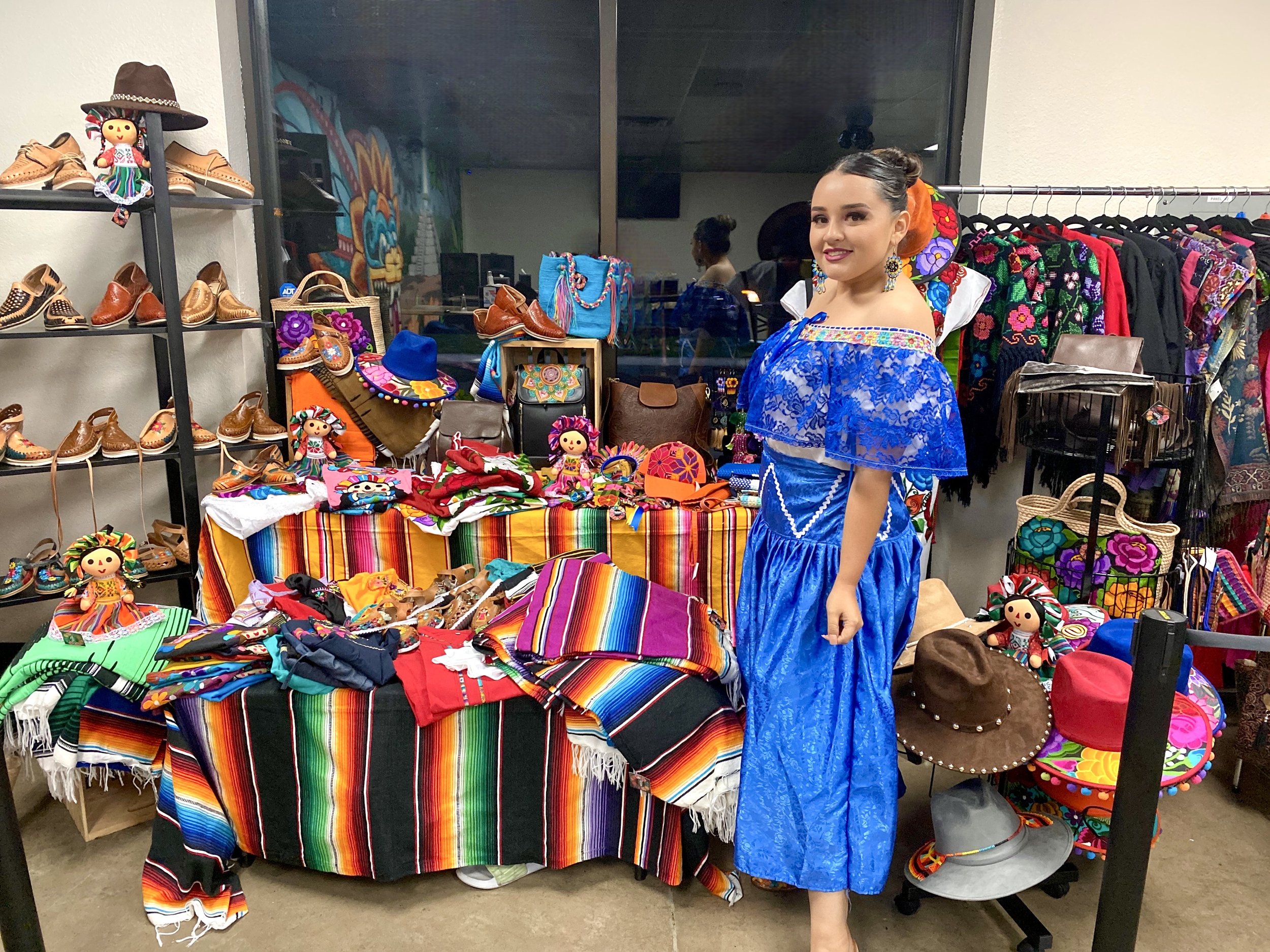Nichim means flower in the Tzeltal language. The Tzeltals are an indigenous and Chapaneca ethnic group. “When I began to have this concern about opening this store, I said well, if I am going to sell so much clothing from Chiapas, and if these Indigenous people are going to share with me what they do, for me to come and bring it here, I wanted to make it something recognizable and significant,” Irlanda Igareda explains of opening her store called Nichim on Mill Street.
Igareda sells embroidery pieces from Chiapas, leather bags and hats from León, Guanajuato, as well as huaraches from her home city Sahuayo in Michoacán among other artisan goods.
What makes Nichim unique from other artisan shops is that Igareda carries the best products from each Mexican state such as sombreros from Guanajuato which is known as the sombrero capital of the world. Igareda also makes sure to know the history of her items.
A few of the huarache designs Igareda sells as well as her artisanal Lelé doll which Igareda takes with her to all her events.
For this interview, Igareda wore a blue traditional dress and explained its origins.
“Look at this outfit that I'm wearing today, it's the Cohuina outfit from the Zoque Coiteco festival. There in Coita, which is located in the State of Chiapas, Mexico and this outfit that I'm wearing today is of a woman, now it is part of a dance, the dance of the cohuitecas,” she said.
Not only that but she knows where her products are coming from and who made them. “My favorite part is when they ask me what part this is from. Every time a person asks me the origin of anything that I have here in stock I love it because I can share absolutely everything that had to happen, for the hat, for the bag, so that the blouse would reach here. That way they obviously fall in love with the products because they know that they are made with love, that they come from people who perhaps have been dedicated to this since they were children,” Igareda says.
While Igareda can always be spotted wearing traditional wear and it’s become a part of her brand image, she’s just being true to herself. She loves wearing traditional outfits because they hold huge significance in Mexican culture. Most of this traditional wear is often passed down from generation to generation and can show to the world where a person’s roots are from.
“I think that as a Hispanic the most important thing, what we should never forget, are our roots. Every Hispanic comes here with a dream, above all, the message that I always share, not just for Hispanic Heritage Month, but always. The message of the empowerment of women in this country and in its society. That each woman realizes that she totally has the right and the ability to grow in any field of work and, in this way grow her economy to have a better quality of life,” Igareda says.

